About Registration
Everything you need to know to sign up and save lives
Registering to be tissue, eye and organ donor on the Donate Life Texas registry is quick, easy and secure. Since 2005, more than 15.9 million Texans have trusted us with their donation decisions.
Check out our frequently asked questions below, and contact us if you still have questions.

Registering is easy and convenient
No matter how you choose to register, you only need to register once.
Choose what’s best for you! Explore your option below:
Register online today! Add your name to the Donate Life Texas registry.
It takes just a few minutes.
- Complete a paper form
Fill it out and drop it in the mail!
(Download English Form) (Download Spanish form) - Visit the Department of Public Safety
Check the YES box when you apply for or renew your driver’s license or ID card - Visit the Department of Motor Vehicles
Register as a donor when you apply for or renew your vehicle registration - Check out Texas Parks and Wildlife
Check the box on your hunting or fishing license online
Registration FAQs
Who can register as a tissue, eye and organ donor?
Texans of any age can register to be a donor. Teens ages 15 – 17 can register to be a donor beginning when they apply for their learner’s permit or first driver’s license. Children under the age of 18 do not need parent permission to register, but a parent or guardian will need to affirm their decision if they have the opportunity to be a donor.
Once you’re 18 years of age or older, your registration is legal authorization for donation to occur and your decision cannot be changed by another person. All Texans can register to be a donor, regardless of health conditions or background.
What does it mean to register as a donor?
Registering to be a donor means you agree to donate your organs, eyes and tissues to help others in need after your death. It is a legal authorization for donation and if you are over the age of 18, your lifetime decision to be a donor cannot be overturned by another person. This ensures your decision will be honored.
Registering to be a donor does not include any commitments to living organ donation, blood donation, bone marrow donation or whole body donation. These are noble causes as well, though, and if you’re interested in these opportunities you can find more information here.
I’ve registered to be a donor. What else do I need to do?
By registering to be a donor you’ve taken the most important step in ensuring your decision will be honored. While you don’t need the affirmation of another person for donation to proceed, we suggest you share your decision with your family and loved ones so they can be prepared to support your decision. A conversation with your loved ones is also a great opportunity to learn about their donation decisions and have a meaningful path forward to honor their legacy.
Talking about death feels hard. How do I share my decision with my family?
For some people and families, talking about end-of-life decisions is a tough topic. Others welcome the opportunity to have these conversations in advance so that everyone is prepared when difficult times arise. If it feels tough, here are some suggestions to get started:
- Focus on being prepared because you care about your family and want to do what you can to make the process simpler.
- Start the conversation by mentioning a news story, social media post or other information about organ, eye and tissue donation.
- Tell your family you want to share what’s important to you so that they can be prepared to honor your decision.
- Consider focusing on the lives you hope to impact.
- Know that this doesn’t have to be a single conversation, but can evolve over time with repeated discussions.
What if my family doesn’t agree with my decision?
It’s ok if you and your family don’t agree with your decision – we don’t always agree with our loved ones. Having a conversation can help you understand their questions or concerns and share facts and information that are important to you. Ultimately, registering to be a donor means that your decision will be honored regardless.
How do I get a heart on my driver’s license or ID card?
When you apply for a new or renewed driver’s license or ID card in Texas, you will be asked the question “Would you like to join the organ donor registry?”
If you say “yes,” you will be added to the Donate Life Texas registry and your license or ID card will be printed with a Hero’s Heart symbol as a reminder of your decision to save lives. If you say “no,” the heart symbol will not appear on your card. However, this does not change your registration status if you previously registered. It just means you won’t have the heart symbol on your license this time.
If you decide to remove your name from the registry, please access your record here to update your status. If you believe there has been a printing error with your license or ID card, please contact info@donatelifetexas.org to initiate an inquiry.
Please note that the Hero’s Heart symbol alone is not confirmation of a person’s registration status. A person’s most recent action on their registry record takes precedence.
What happens if I register in Texas and die in another state?
Donate Life Texas is part of the national Donate Life America registry network, which means that your registration information is accessible to donation agencies throughout the country if needed.
What if I change my mind?
You have the right to make a decision about donation that’s right for you. If you decide to change your decision after having previously registered, you can access your registration and remove your name. You’re always welcome to register again in the future if you change your mind, and you can contact us if you need help with this or have any questions.
